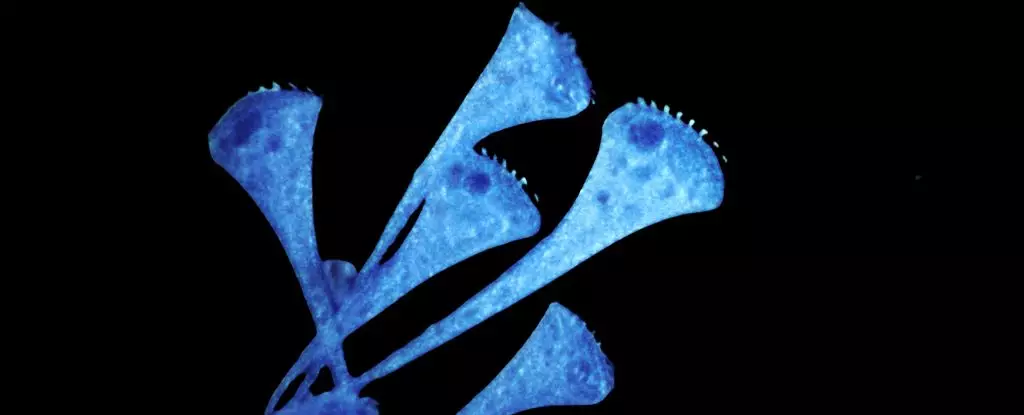Recent research has illuminated an intriguing phenomenon: individual cells, even in the absence of a complex nervous system, exhibit a form of learning similar to that seen in higher organisms. At the forefront of this groundbreaking study is biologist Jeremy Gunawardena from Harvard Medical School, who articulates the baffling nature of this finding. He poses an essential question: how can brainless cells engage in sophisticated learning processes? This revelation invites scientists to re-evaluate their understanding of intelligence and learning at a cellular level, blurring the lines previously drawn between simple organisms and more complex entities.
The specific type of learning examined is termed *habituation*, a process wherein the response to a repeated, non-rewarding stimulus diminishes over time. Common examples of habituation include wildlife growing accustomed to human presence or individuals becoming desensitized to a lingering odor in their environment. The implications of such findings could reshape our understanding of memory, not just in neurons but within every cell of our bodies. Max Planck Institute neurobiologist Lina Eckert and her colleagues have used advanced computer modeling techniques to analyze molecular networks within both mammalian cells and unicellular ciliates, discovering a double-response system. This dual mechanism allows one response to decline slowly, causing the cell to acclimate to specific stimuli.
The Mechanisms Behind Cellular Response
The capacity to exhibit varied responses to stimuli is fundamental to the concept of habituation. According to Rosa Martinez from the Centre for Genomic Regulation, the research team has uncovered four distinct molecular networks responsible for this intricate process. By slowing down one reaction while the other fades more quickly, cells can effectively manage their responses to external signals. Once the slow response dissipates, there is a resurgence of the initial reaction intensity, highlighting a potential form of cellular memory that influences both immediate reactions and future responses.
Such revelations highlight the need for further investigation to confirm these findings in living cells. Past studies have already demonstrated habituation in specific ciliates, such as *Stentor coeruleus*, providing a foundation for the current research. By utilizing innovative approaches, Eckert and her team aim to prioritize their experiments for maximum efficacy, seeking to further unlock the secrets of cellular memory and its implications.
The Implications for Medicine and Cancer Treatment
If future investigations validate the existence of these cellular memory networks, the potential benefits for medical science could be transformative. One fascinating application could involve re-engineering immune cells to re-recognize cancer cells more effectively. Gunawardena lyrically suggests this line of inquiry could lead to breakthroughs that allow the immune system to perceive tumors accurately. By understanding how cells encode misleading perceptions, researchers might develop strategies that enhance immune response against malignant cells, thereby fostering new cancer therapies.
Currently, the idea of manipulating cellular memory might seem akin to science fiction, but the research represents a promising direction worthy of exploration. The implications could extend beyond cancer treatment to various medical fields, potentially revolutionizing our approach to cellular behavior and treatment strategies.
The broader narrative surrounding learning in cells has long been contested. Exploring the concept of learning outside traditional brain-centric models has significant implications for biological sciences. Emerging research, including findings of cellular learning through repetition, is challenging long-standing ideologies that constrain our understanding of intelligence. Eckert and her team underline the ideological and scientific rifts that have historically clouded this subject.
The notion of learning at a cellular level opens new research avenues and reminds us that intelligence may not be exclusive to organisms with centralized nervous systems. As scientists continue to unravel the complexities of cellular responses and learning mechanisms, our understanding of life, intelligence, and behavior will undoubtedly evolve. This paradigm shift encapsulates the potential for further interdisciplinary studies spanning biology, neuroscience, and medicine, creating a comprehensive view of learning that spans the microscopic to the macroscopic worlds.


Leave a Reply